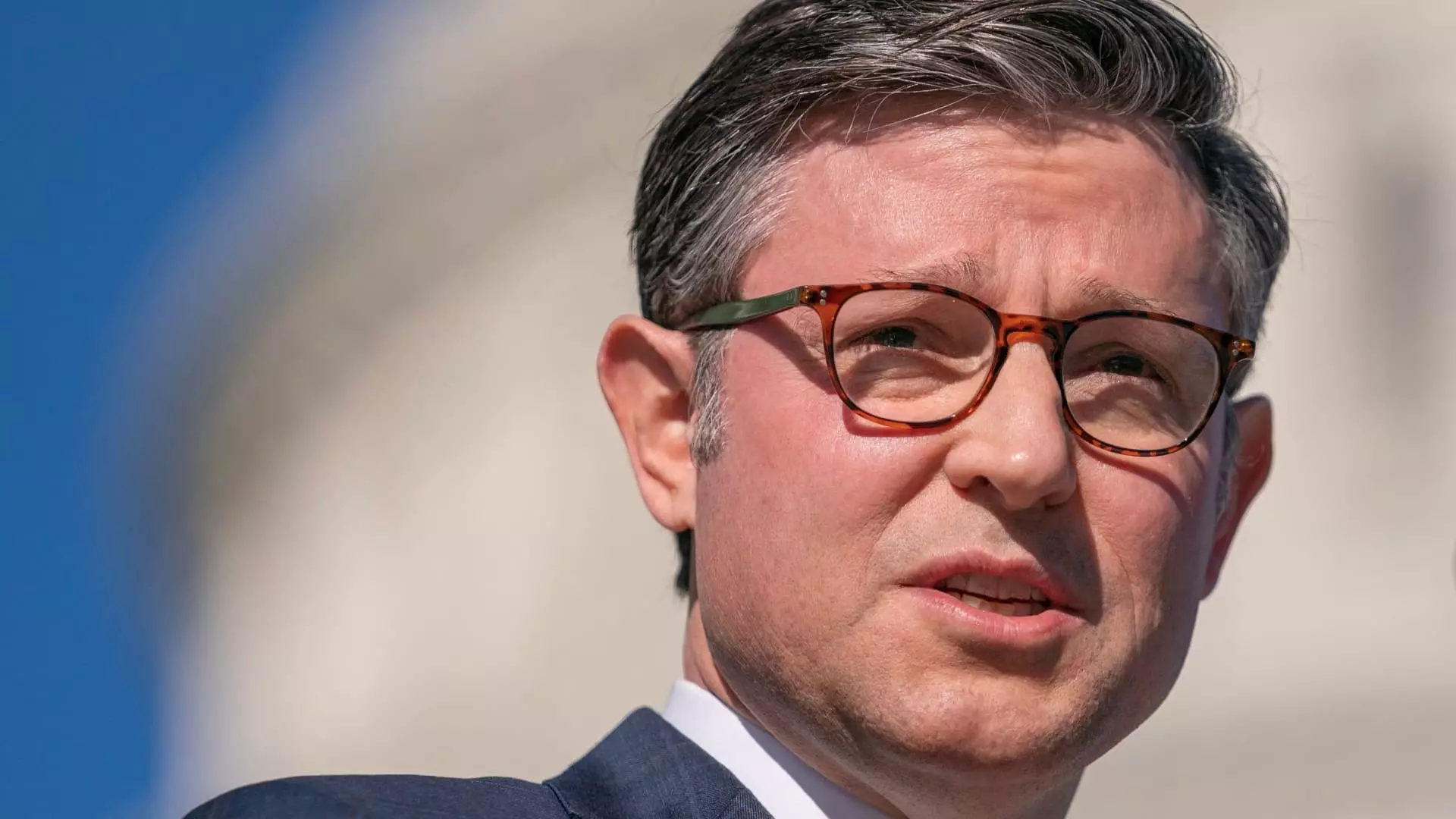The recent developments surrounding former Congressman Matt Gaetz, particularly in light of his nomination as U.S. Attorney General by President Donald Trump, have ignited fierce debates about ethics and accountability within the government. House Speaker Mike Johnson has described the ongoing investigation by the House Ethics Committee as a “Pandora’s box,” raising significant questions about transparency, the role of governmental bodies in addressing allegations against public officials, and the implications for Gaetz’s potential future in the administration.
The House Ethics Committee has been scrutinizing Gaetz for various allegations, including sexual misconduct and drug use. Johnson’s insistence that the committee’s report should not be released stems from his belief that it remains incomplete, emphasizing that Gaetz’s resignation from Congress effectively severed the committee’s jurisdiction over him. This perspective highlights a critical conflict in governance: should an incomplete report—especially one laden with serious allegations—remain confidential to protect a private citizen, or should it publicize the findings for the broader community’s awareness?
The Ethics Committee’s mandate focuses on current members of Congress, which ultimately raises points about the boundaries of ethical investigations. If the committee’s work is perceived as a partisan effort to discredit an individual, the very essence of congressional ethics could come under scrutiny. Johnson seems to advocate for a careful approach, suggesting that pursuing Gaetz post-resignation could misuse the committee’s resources and create unnecessary controversy.
Conversely, some voices, including Republican Senator Markwayne Mullin, argue for the immediate release of the Ethics Committee’s findings. Mullin contends that the Senate should have access to the report during its advice and consent processes, reinforcing the need for comprehensive vetting of nominees. This stance illuminates a pivotal principle in governance: the necessity for transparency when it comes to confirming public officials, especially those nominated for critical positions. Without complete information, the Senate’s review process might be compromised, potentially leading to the validation of a candidate with unanswered ethical queries.
The opposition between these viewpoints reflects an ongoing struggle within political circles about how best to handle allegations against figures who wield substantial power. The argument transcends individual misconduct—it’s about maintaining the integrity of governmental processes and ensuring that dark corners of public service remain illuminated.
Adding to the complexity is the backdrop of Gaetz’s involvement in a previously investigated federal case concerning sex trafficking, which concluded without charges. This leaves the public with lingering doubts about his past and its implications for his potential future roles. The tension between his qualifications as a legal professional and the weight of allegations clouding his reputation raises essential questions about the nature of justice and accountability in political appointments.
The attorney representing a woman who claims to have witnessed Gaetz’s sexual misconduct with a minor has amplified these concerns, stating that she provided testimony to the Ethics Committee. As such revelations surface, the public’s right to be informed clashes with the legal presumption of innocence—a delicate balance that must be managed with prudence and existing legal frameworks.
Ultimately, the situation surrounding Matt Gaetz serves as a microcosm of larger issues within American governance. The dialogues initiated by figures such as Mike Johnson and Markwayne Mullin showcase the contrasting philosophies regarding ethics, transparency, and accountability in public service. As the Senate prepares to engage with Gaetz’s nomination, the implications of the Ethics Committee’s findings—if they are released—will undoubtedly influence not only Gaetz’s fate but also our collective understanding of integrity in political leadership.
In a democracy, the expectation of ethical conduct cannot coexist with the avoidance of uncomfortable truths. As debates continue, the essential challenge remains: how can governance maintain its integrity while honoring the complex realities of human behavior and the importance of due process? This ongoing saga offers a critical lesson in navigating the murky waters of public accountability, demanding scrutiny and integrity at every level of government.


Leave a Reply